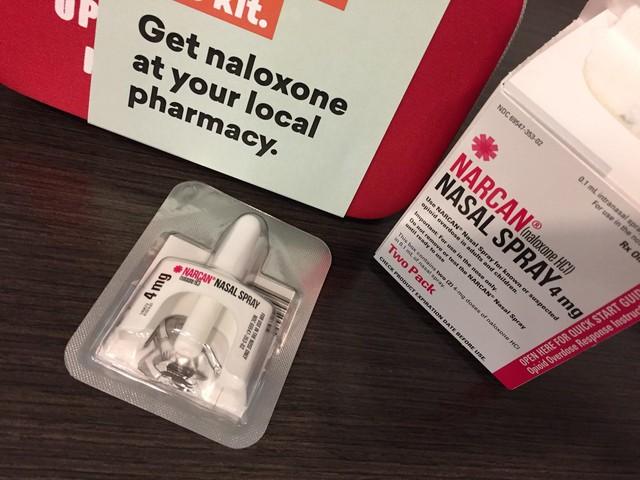
The Oregon Health Authority is sending out kits to 8,000 businesses across the state with the goal of reducing opioid overdoses at work.
On average, five Oregonians die every week from an opioid overdose.
The Oregon Health Authority now wants employers to train staff to administer the opioid inhibitor, naloxone, just like they’re trained to perform CPR or attach a defibrillator.
“We know that many opioid overdoses happen in public spaces and at workplaces, and employers have a powerful role to play in helping save lives and turn the tide of this epidemic,” said Dr. Dana Hargunani, OHA chief medical director.
“Most workplaces are already equipped with fire extinguishers and [automated external defibrilators],” Hargunani said. “We hope this pilot project will inspire more employers to build life-saving naloxone into the way they prepare for emergencies and create safe spaces for employees and customers alike.”
Steve Clem trained construction workers for Skanska in Portland.
“It’s not that complex but I think a lot of it is getting over the stigma of seeing someone in crisis and not knowing why they’re in crisis – and also the feeling of you could do something to cause further harm,” Clem said.
Clem said they’re taught that naloxone nasal spray is unlikely to harm anyone, even if they’re not on opioids.
State health officials said people are legally protected when administering naloxone, but the kits OHA is sending out don’t actually contain the drug. Businesses have to buy it themselves, at a cost of between $20 to $120 dollars a dose.
The pilot project includes an intentional effort to partner with Native American communities. The nine federally recognized tribes in Oregon and the Native American Rehabilitation Association have been working already to address the opioid epidemic.
“We continue to further understand the trauma we as Native Americans have gone through which has contributed to higher than average substance use disorders, but we also acknowledge how resilient we have been over the years which gives us hope,” said Caroline Cruz with the Confederated Tribes of Warm Springs.
Cruz said tribal communities appreciate the money OHA is providing, as a way to expand efforts. She said the confederated tribes are focused on a “full continuum of care from prevention to treatment and aftercare.”
“Our culture is prevention, our culture is treatment, and our culture is making us healthier – our strength is our tribal communities working together and sharing our practices with each other,” Cruz said.